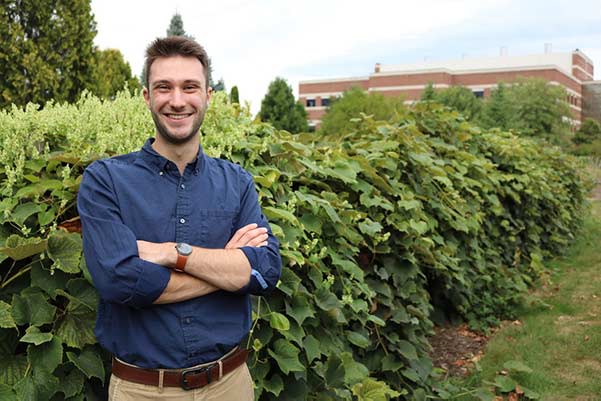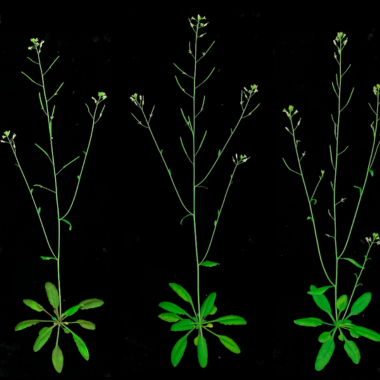MSU doctoral student Ethan Thibault awarded prestigious NSF fellowship
Ethan Thibault, a Ph.D. student in the Molecular Plant Sciences graduate program, is a recipient of a 2020 National Science Foundation (NSF) Graduate Research Fellowship (GRF).
The NSF Graduate Research Fellowship is one of the country’s most prestigious and competitive awards for graduate students. The program recognizes and supports outstanding graduate students who are pursuing research-based masters and doctoral degrees in fields within NSF’s mission. For the 2020 competition, NSF received over 13,000 applications and made approximately 2,000 fellowship offers.
The NSF Graduate Research Fellowship Program benefits include three years of financial support for the awardees, including an annual stipend of $34,000 and a cost of education allowance of $12,000 to the educational institution. Fellows also get access to professional development opportunities available to NSF-supported graduate students.
“I was extremely excited and grateful when I found out I had been chosen as a recipient for this award. I learned about the NSF GRF over five years ago, after my freshman year, and remember deciding that day that I would apply when the time came for me to become a graduate student,” says Ethan, who is in the lab of MSU-DOE Plant Research Laboratory (PRL) scientist Federica Brandizzi and is a member of the Department of Plant Biology.

Courtesy of Ethan Thibault
Ethan is studying the conserved molecular pathway known as the unfolded protein response (UPR), an important mechanism that protects plants from disease and stressful environmental conditions, such as heat. He works on the model plant species, Arabidopsis thaliana, to identify and characterize key players that help plants perceive when the endoplasmic reticulum is stressed so that these plants can react accordingly and stay safe.
“When I think about Ethan, the first thought that comes to mind is: enthusiasm! I am thrilled that Ethan has joined my lab,” says Brandizzi, MSU Foundation Professor and Ethan’s mentor. “He has already made remarkable progress despite the difficulties that COVID-19 has imposed on his professional life. I have no doubts that he will be highly successful.”
“On behalf of the Molecular Plant Sciences graduate program, I want to extend my congratulations to Ethan!” says Brad Day, Molecular Plant Sciences program director and MSU Foundation Professor. “He comes to MSU as a highly recruited first-year student, and this award not only exemplifies his abilities as a student and scientist, but also lays a strong foundation for his future as a leader in the plant science community. Together, with a cohort of world class students, staff, and faculty, Ethan will undoubtedly make significant contributions to continue to advance MSU as a global leader in plant science research.”
NSF Fellows are anticipated to become knowledge experts who can contribute significantly to research, teaching, and innovations in science and engineering. Since 1952, NSF has funded over 50,000 Graduate Research Fellowships out of more than 500,000 applicants. Currently, 42 Fellows have gone on to become Nobel laureates, and more than 450 have become members of the prestigious National Academy of Sciences.
“Reflecting on my path to where I am today – having participated in two NSF Research Experiences for Undergraduate programs and being awarded this fellowship – generates an overwhelming appreciation for the NSF and their faith in my potential and success as a scientist and researcher. I am eager to show that their confidence in me was well placed as I pursue my passions in molecular plant sciences here at MSU!” Ethan concludes.



